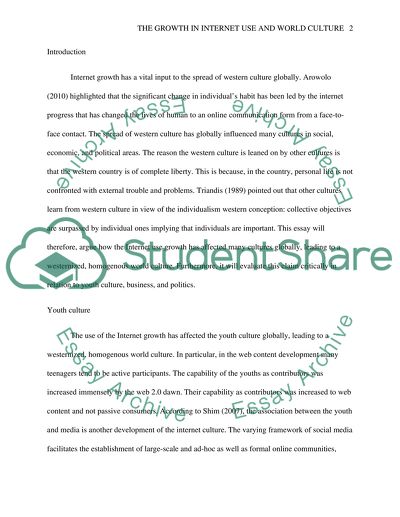Cite this document
(“The growth in internet use has affected cultures around the world, Essay - 4”, n.d.)
Retrieved from https://studentshare.org/english/1688222-the-growth-in-internet-use-has-affected-cultures-around-the-world-leading-to-a-westernised-homogenous-world-culture
Retrieved from https://studentshare.org/english/1688222-the-growth-in-internet-use-has-affected-cultures-around-the-world-leading-to-a-westernised-homogenous-world-culture
(The Growth in Internet Use Has Affected Cultures Around the World, Essay - 4)
https://studentshare.org/english/1688222-the-growth-in-internet-use-has-affected-cultures-around-the-world-leading-to-a-westernised-homogenous-world-culture.
https://studentshare.org/english/1688222-the-growth-in-internet-use-has-affected-cultures-around-the-world-leading-to-a-westernised-homogenous-world-culture.
“The Growth in Internet Use Has Affected Cultures Around the World, Essay - 4”, n.d. https://studentshare.org/english/1688222-the-growth-in-internet-use-has-affected-cultures-around-the-world-leading-to-a-westernised-homogenous-world-culture.


